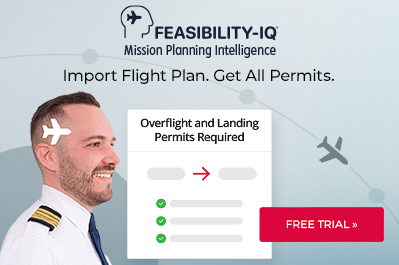Dublin, Ireland: 2025 Business Aviation Destination Guide

Dublin, the capital of Ireland, is a popular business aviation destination in Europe. Located on the east coast, Dublin is well-connected to Europe and the rest of the world, making it a convenient hub for business travelers. Dublin Airport (EIDW) serves as the primary business aviation airport and handles over 10,000 business aviation movements per year. Here’s what you need to know about operating a business jet to Dublin:
Airport Options
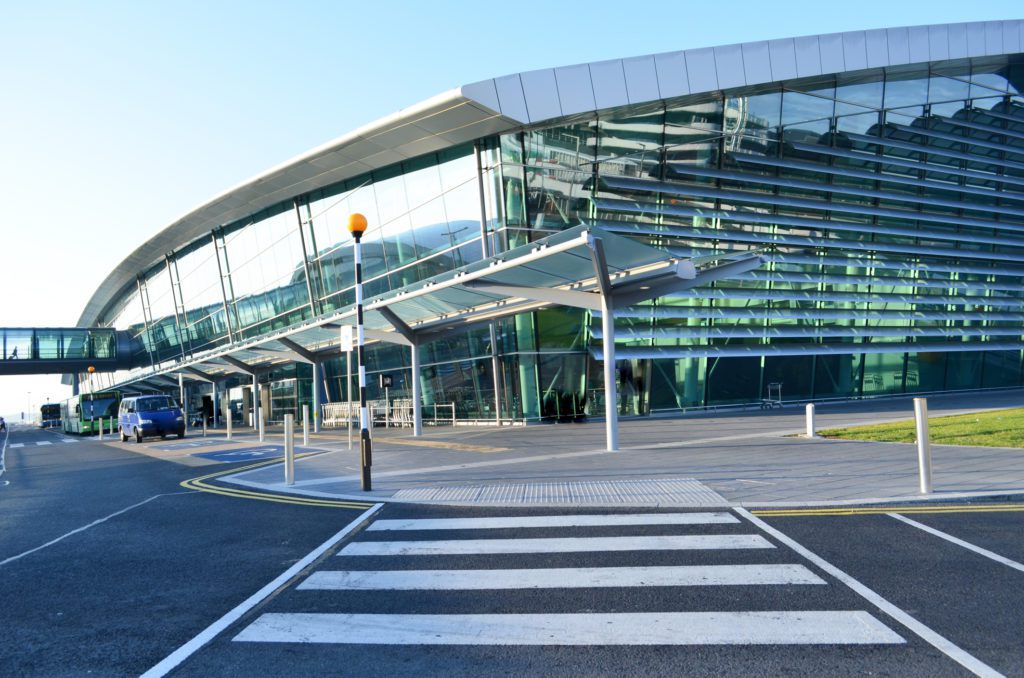
Dublin Airport (EIDW) is the main airport for business aviation travel to the city. It is one of Europe’s busiest airports, catering to more than 35 million passengers annually. Just 8km from the city center, EIDW is easily accessible for travelers. The airport is business aviation-friendly, providing ample aircraft parking and full services/credit. However, parking charges can be high depending on location and duration. The airport infrastructure, including the tarmac, taxiways, and runways, is well-maintained. The city center is an 8km (5-mile) drive, taking about 25-40 minutes depending on traffic. During your stay in Dublin, consider visiting popular attractions like the Guinness Storehouse, Trinity College, the Jameson Whisky Distillery, and the city’s numerous museums.
EIDW Hours & Slots
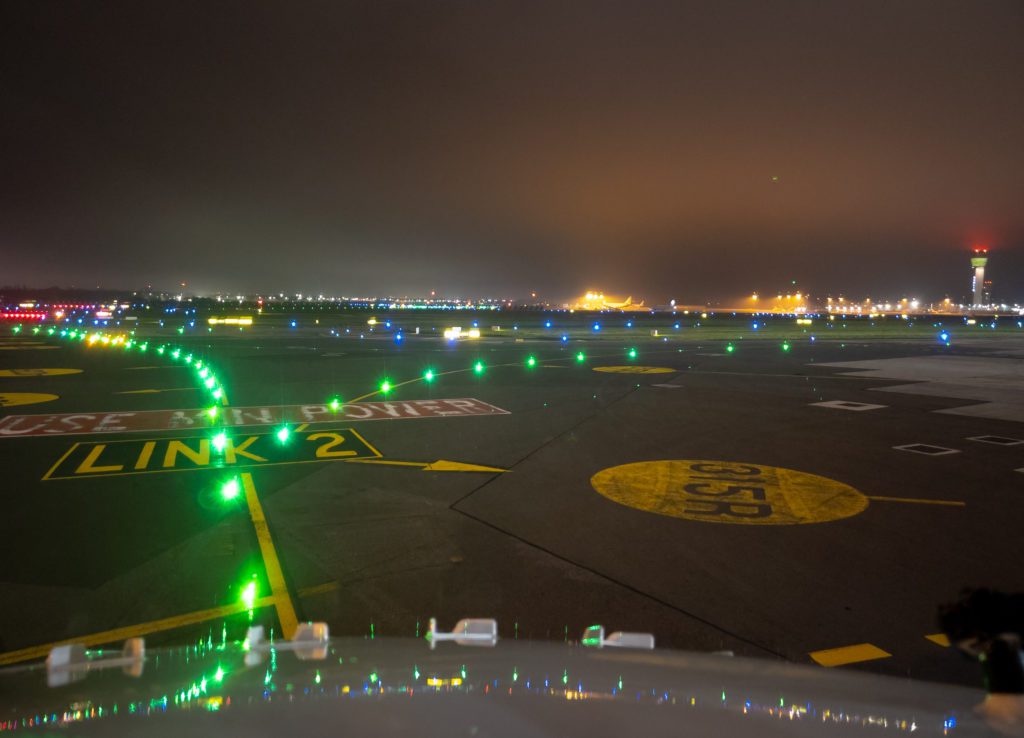
EIDW operates 24/7, except for annual closures from December 24, 2300 local, to December 26, 0600 local, when only emergency flights are accepted. Peak hours (0600-0730 local and 2100-2230 local) may see increased traffic, but no General Aviation (GA) restrictions apply. EIDW does not currently have noise restrictions in place.
All aircraft operating to/from EIDW require airport slots, with the same requirements for private non-revenue and charter (non-scheduled commercial) operations. Request airport slots as far in advance as possible, as short-notice requests may have limited options. Once slots are confirmed, aircraft parking is also confirmed.
Airport slots are requested through an online coordination system, requiring an account. Your local ground handler or 3rd-party provider can assist with this process. Slot confirmation, pending status, or unavailability will be indicated in the system. A confirmation number will be provided for approved slots, but it does not need to be included in remarks 18 of the flight plan.
De-icing will require the aircraft to be repositioned under their own power to the commercial ramp. Please allow sufficient time for this should we know in advance de-icing is required.
In case a requested slot is unavailable, the next best option will be provided. Slot deviation is -/+ 15 minutes, with no penalty for missing a slot. During inclement weather or peak commercial airline movement periods (typically 0600-0730 and 2100-2230 local), slot availability may be limited at EIDW.
Eurocontrol governs the slot system, but EIDWairport authorities can authorize airport slots during emergencies. Once your schedule is submitted, the ground handler will immediately apply for airport slots. No documents are needed for this procedure.
Ground handlers will charge 40 euros for coordinating airport slot arrangements. Once a slot is confirmed, the airport honors aircraft parking for the specified time period. The assigned parking spot will only be advised upon arrival at EIDW.
PPR Requirements
EIDW mandates Prior Permission Required (PPR) for aircraft that do not meet Stage 3 noise requirements. The Irish Aviation Authority (IAA) issues these PPRs, and it is advisable to communicate directly with the IAA for approval. Generally, permits for non-Stage 3 operations will be approved within the recommended five business days’ lead time, but approved routings and/or flight levels may be subject to restrictions.
Parking Information
At EIDW, there is no time limit on General Aviation (GA) aircraft parking. If the GA area is fully occupied, aircraft will be directed to park on the commercial side, where parking fees are significantly higher. Depending on aircraft size, the GA parking area can accommodate 10 to 15 aircraft. However, the exact parking spot will only be assigned about an hour before arrival. If an aircraft is parked in the commercial area, the ground handler will attempt to relocate it to the GA side as soon as a spot becomes available. For most aircraft relocations, GA crews are not required to be present, provided parking brakes are off. For larger aircraft (ACJ and BBJ-sized and above), the crew must be present during repositioning.
Aircraft parking fees are charged in 15-minute intervals, with different rates for the GA and commercial areas. Currently, GA parking for light aircraft starts at 2.65 Euros per 15 minutes, increasing by 20% after 24 hours, 100 percent after 48 hours, and 200 percent after 72 hours. On the commercial side, parking fees for narrow-body aircraft start at 7.70 Euros per 15 minutes, with the same percentage escalations as the GA area. These high rates aim to discourage long-term commercial aircraft parking but also affect GA. Parking stands are typically accessed and exited under aircraft power.
Ground Handling
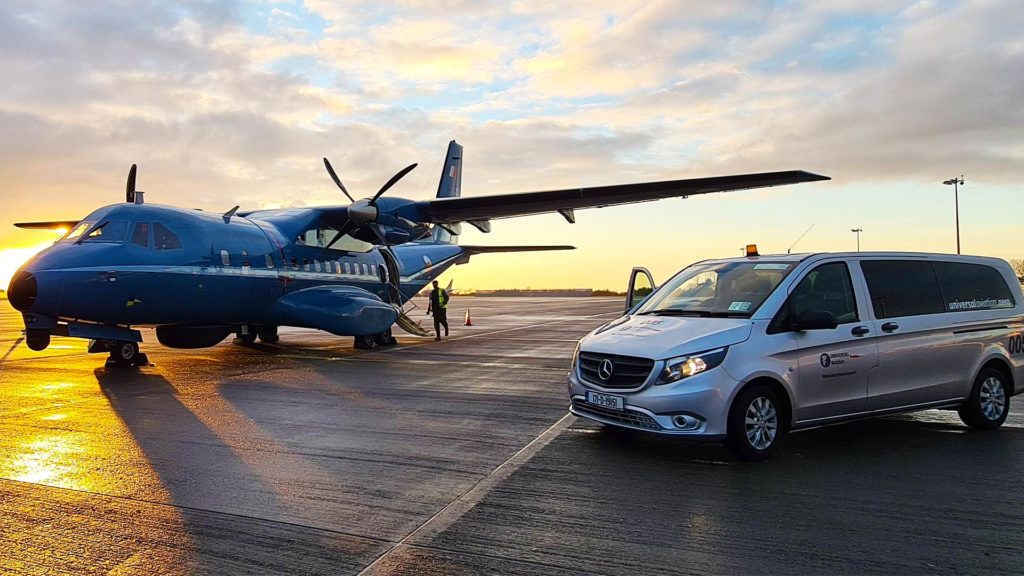
There are just three quality business aviation ground handling companies servicing Dublin Airport, including Universal Aviation Ireland. Ground handlers will be happy to provide cost quotes to help you better refine operating options. Universal Aviation Ireland has had a presence in Shannon for 20 years.
Hotels
Dublin is a major international city with many good hotel options. Some that our Universal Aviation Ireland – Dublin office recommendations include: Shelbourne Hotel, Merrion Hotel and The Marker Hotel.
Catering
There’s one in-flight caterer available on the airport. Universal Aviation is able to store onboard catering arriving from an international destination. This is because ground handler facilities are located airside. Ground handlers will, however, arrange for international trash to be disposed of and incinerated. Specialty in-flight catering requests – fresh fish, specialty wines, etc. – need to be confirmed in advance and not left to the last minute.
You can check Air Culinaire Worldwide to see catering options and menus available.
Security
Airport security is good at EIDW without being arduous. Unarmed airport police patrol the airport perimeter and all ramp areas 24/7. Security cameras cover the entire airport. Private aircraft security is currently not available at EIDW.
Ground Transportation
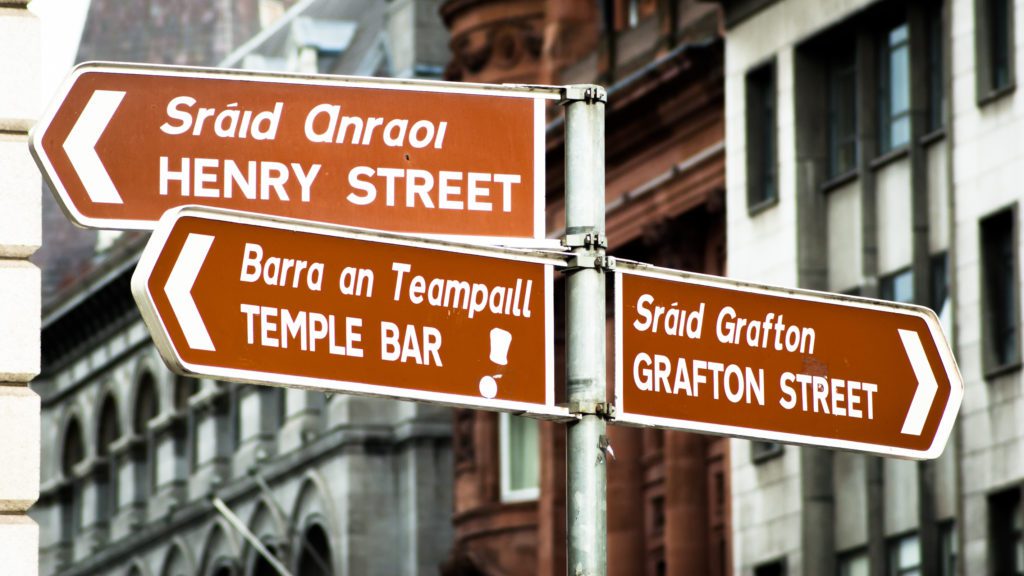
Airside drop-off and pick-up are not permitted. Pre-paid transportation (car and driver) is the recommended local transport option, but taxis are also reliable, and rental car facilities can be found at all major airports in Ireland. For longer stays, rental cars may be more suitable; however, they are not the best choice for crews on shorter visits. It is important to remember that in Ireland, driving is on the left side of the road, and while primary roads are well-maintained, secondary roads can be quite narrow. Road signage is clear, making GPS less essential. Ensure you obtain comprehensive rental car insurance coverage.
In Ireland, a “standard” rental car is equivalent to a sub-compact in the US, and you will typically receive a manual transmission vehicle unless you request an automatic one. For shorter stays, pre-paid transport (car with driver) is often the most convenient option and can be organized through your ground handler.
Fuel
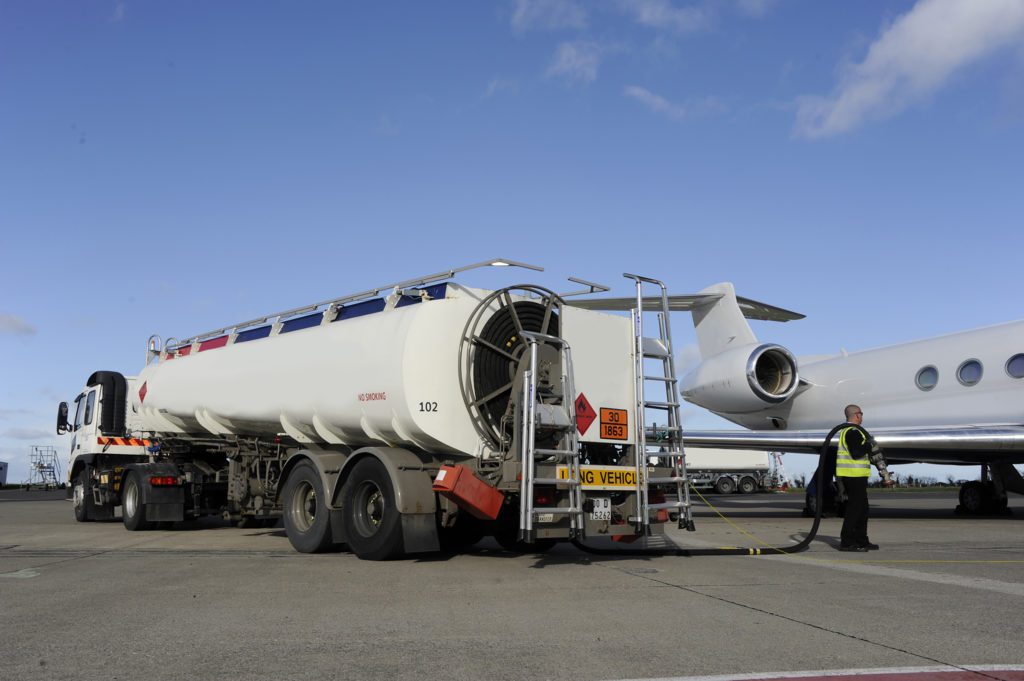
Fuel at EIDW is available 24/7 and can be obtained by truck from an on-airport fuel farm. However, it’s important to note that there are no hydrant facilities available at this airfield. Business aircraft operators have choices when it comes to fuel suppliers. Commercial fuelers can be used, but priority is given to scheduled commercial operations, and delays for General Aviation (GA) can sometimes be up to two hours. A faster and more reliable option is to use a ground handler’s fuel truck, although aviation fuel card acceptance may be an issue in some circumstances. If you’re operating during peak scheduled commercial periods and not using a ground handler fuel truck, expect fuel delays. To avoid fuel delays, it’s recommended to fuel on arrival or the day prior to departure if your aircraft is parked overnight at EIDW and you plan to depart during peak hours. Fuel testing can be arranged upon the operator’s request. Charter operators can exempt VAT on domestic operations within Ireland if they show an Air Operator’s Certificate.
Customs
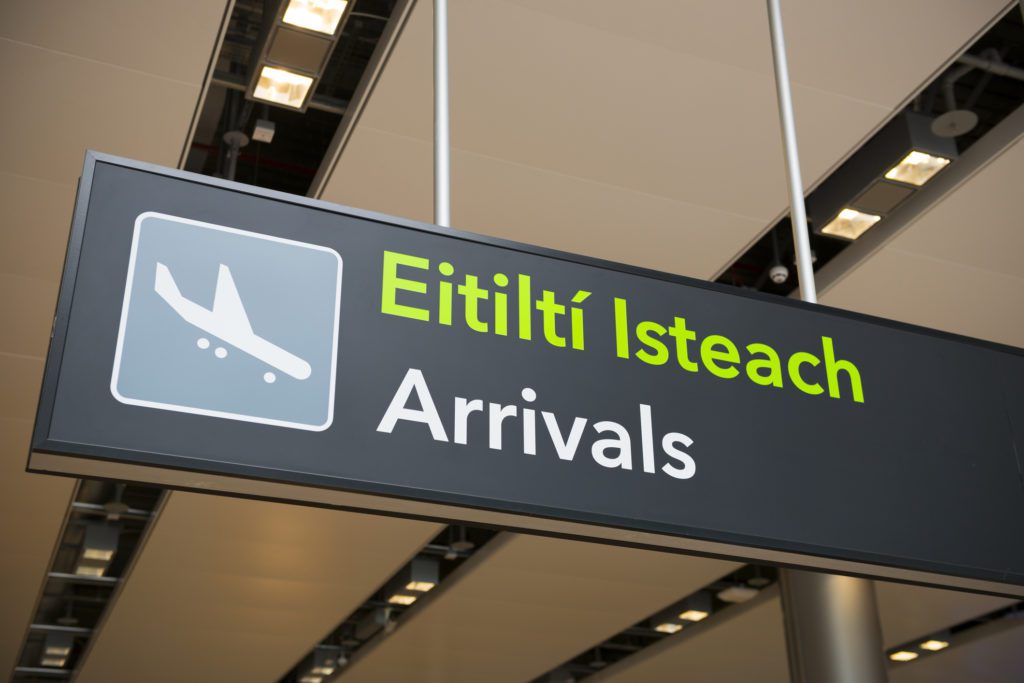
Clearing customs, immigration, and quarantine (CIQ) when arriving at Dublin Airport (EIDW) is generally straightforward and efficient for business aircraft operators. Crew members are usually not subject to customs/immigration screening upon arrival or when departing from the airport. However, special considerations are necessary when traveling with pets.
Immigration and Customs arrival protocol will see processing through the Platinum Services GA facility for all Crew and Pax. The airport Platinum Services GA Terminal will also be the designated area for screening and processing for crew and pax prior to departure. Onboard CIQ clearance must be approved in advance.
All passengers and their luggage are escorted to Platinum Services by the ground handler for customs and immigration clearance. The process usually takes around 10 to 15 minutes during busier periods, and a Universal/ Platinum agent will be present throughout the entire process.
It’s important to note that Schengen visas, if required, must be obtained before arrival, and passengers must have a minimum of one-month remaining validity on their passports.
If carrying a public figure, and there’s a security risk, a request may be submitted for onboard clearance, though approval is not guaranteed and depends on workload and duty officer schedules.
Documentation
Passengers must present passports with validity extending for the full length of their stay in Ireland. Crew IDs will suffice in place of passports. Some non-EU nationals require Schengen visas for Ireland, and these visas cannot be obtained on arrival. Arrival and departure cards are no longer necessary, but you’ll need to provide a General Aviation Report – preferably in advance – containing crew/passenger details in order to set up ground handling and CIQ. This report follows a specific format and can be filled out by your ground handler. Departure tax is payable for any passengers who’ve stayed in Ireland 24 hours or more.
Tech Stops at Dublin Airport
For technical stops, plan on 30 to 90 minutes on the ground (wheels down to wheels up). It’s recommended to pre-notify 24 hours in advance for all tech stops. Be aware that only the on-airport caterer has a permit to deliver in-flight catering airside. If catering is sourced off-airport, the crew will need to bring it with them to Platinum Services for screening on departure.
Weather
 The best time to visit is from March to October. Temperatures drop with plenty of rain during the other months.
The best time to visit is from March to October. Temperatures drop with plenty of rain during the other months.
Peak Season
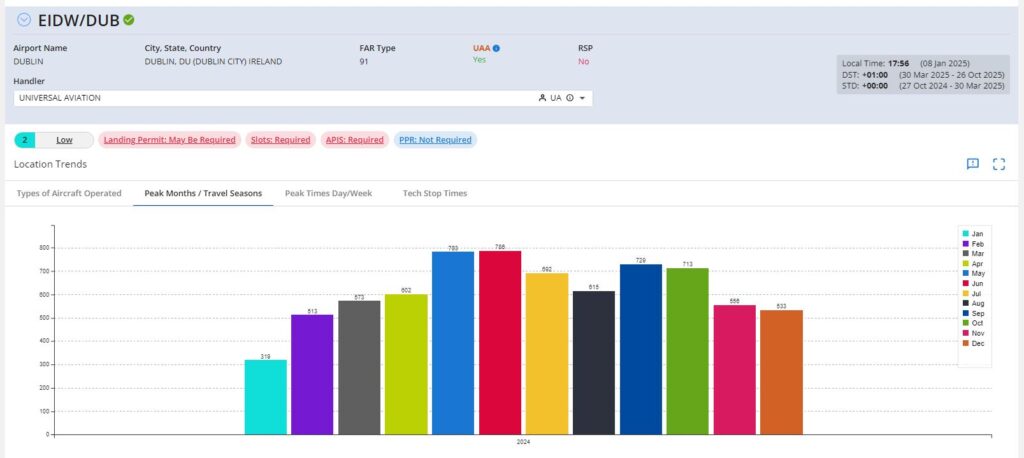
For more destination insights, sign up for Feasibility-IQ.
May to October is Dublin’s peak season with the busiest months for GA being June, September and October.
Universal Aviation Ireland – Dublin Can Help
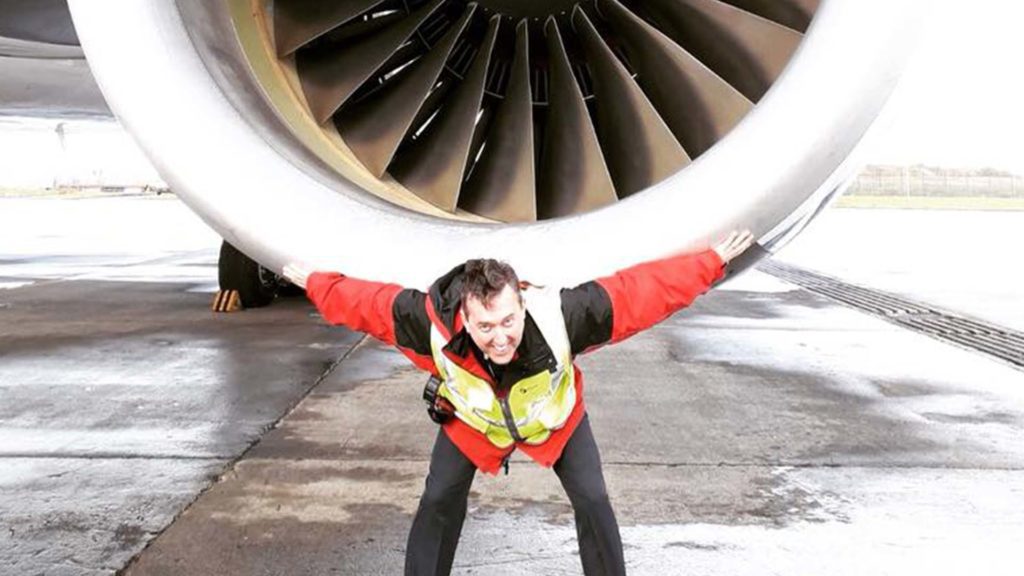
Universal Aviation Ireland-Dublin has more than two decades of experience in Dublin. Our team can help ensure your mission to Dublin is seamless.



